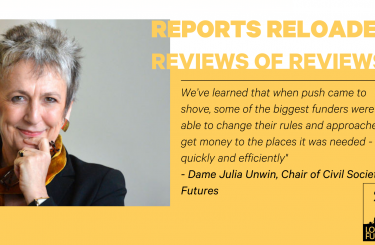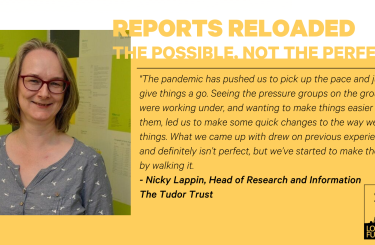Related


‘To Begin at the Beginning’ was launched in 2019 in response to the rising levels of violence impacting young people. London Funders had been working with its members on this issue since early 2018 and the report explored what members were already doing and where they might go next.
In this piece, Sarah Willis, Head of Strategic Partnerships & National Delivery at Metropolitan Thames Valley, looks back at the lessons from ‘To Begin at the Beginning’ and explain why they are still relevant.
The report also set out a number of principles to guide funders response to violence affecting young people, developed by a small group of funders. The aim was to try to unify funding behaviours that would enable the already excellent work taking place within communities and help to catalyse new approaches.
2021 has seen the worst year for teenage killings in London on record. The total of 30 teenage homicides has passed the previous peak of 29 in 2008. This is shocking and it’s not just statistics; these are people as young as 14 and 15 losing their lives with families and communities torn apart by trauma.
The issues that have led to increased levels of violence are complex, but the root causes lie in the inequalities faced by vulnerable young people day in, day out; early childhood trauma, high levels of deprivation, risk of long term unemployment, poor mental well-being, exclusion from education and lack of decent housing, and of course, the added impact of the global pandemic. If we are serious about making systemic change to tackle these root causes, we must work together across all levels of civil society.
The issues that have led to increased levels of violence are complex, but the root causes lie in the inequalities faced by vulnerable young people day in, day out
The ‘To Begin at the Beginning’ report outlined the need for systemic change to tackle the root causes of violence and included nine principles. These principles were:
These principles still stand as the basis of best practice to inform how funders work. However, we now need a change of gear, we need to dig deeper in terms of developing new responses to how and what we fund. It’s time to consider what will enable the funding community to meaningfully tailor how to fund work that can positively reduce violence that affects young people.
It’s time to consider what will enable the funding community to meaningfully tailor how to fund work that can positively reduce violence that affects young people.
Moving from generalist funding models to tailored approaches is essential. There are several areas we could explore further:
We are in the midst of a long-term challenge that requires radical, brave and long-term thinking. We can revisit ‘To Begin at the Beginning’ and encourage a fresh response to build connections, change the conversation and create greater impact through unity of shared goals with the purpose of reducing violence affecting young people.

